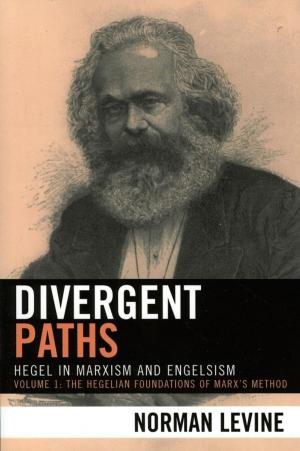The Split Subject of Narration in Elizabeth Gaskell's First Person Fiction
Fiction & Literature, Literary Theory & Criticism, Feminist Criticism, Women Authors| Author: | Anna Koustinoudi | ISBN: | 9780739171639 |
| Publisher: | Lexington Books | Publication: | December 16, 2011 |
| Imprint: | Lexington Books | Language: | English |
| Author: | Anna Koustinoudi |
| ISBN: | 9780739171639 |
| Publisher: | Lexington Books |
| Publication: | December 16, 2011 |
| Imprint: | Lexington Books |
| Language: | English |
The Split Subject of Narration in Elizabeth Gaskell’s First-Person Fiction analyzes a number of Elizabeth Gaskell's first-person works through a post-modern perspective employing such theoretical frameworks as psychoanalytic theory, narratology, and gender theory. It attempts to explore the problematics of Victorian subjectivity, bringing into focus the ways in which both her realistic and Gothic texts undercut and interrogate post-Romantic assumptions about an autonomous and coherent speaking and/or narrating subject. The essential argument of the book is that the mid-nineteenth-century narrating “I”, in its communal, voyeuristic, and Gothic manifestations emerges as painfully divided, lacking, unstable, ailing, and hence unreliable, pre-figuring, at the same time, later forms of self-conscious narration in fiction. Furthermore, it is also exposed as performative, one that can be seen as a simulacrum without an original, and, consequently, at odds with post-Romantic, empiricist assumptions about the factuality, centrality, and rationality of the human subject, while at the same time, clinging to illusions of autonomy. Plagued by its own self-awareness, the narrating “I” is alienated both from itself as well as from those it attempts to represent, including its own narrated counterpart. To this effect, it argues that throughout a trajectory of configurations, psychic investments and imaginary identifications, embedded in and conditioned by the workings of desire and ideology, both of which underpin discursive and representational practices, narrative subjectivity in Gaskell’s first-person fiction manifests itself as the product of a misrecognized encounter between the subject who narrates and that which is being narrated. Both are essentially unable to see their split character and the alienating chasm opened up between them, for the former, on the level of narration, and, for the latter, on a thematic level.
The Split Subject of Narration in Elizabeth Gaskell’s First-Person Fiction analyzes a number of Elizabeth Gaskell's first-person works through a post-modern perspective employing such theoretical frameworks as psychoanalytic theory, narratology, and gender theory. It attempts to explore the problematics of Victorian subjectivity, bringing into focus the ways in which both her realistic and Gothic texts undercut and interrogate post-Romantic assumptions about an autonomous and coherent speaking and/or narrating subject. The essential argument of the book is that the mid-nineteenth-century narrating “I”, in its communal, voyeuristic, and Gothic manifestations emerges as painfully divided, lacking, unstable, ailing, and hence unreliable, pre-figuring, at the same time, later forms of self-conscious narration in fiction. Furthermore, it is also exposed as performative, one that can be seen as a simulacrum without an original, and, consequently, at odds with post-Romantic, empiricist assumptions about the factuality, centrality, and rationality of the human subject, while at the same time, clinging to illusions of autonomy. Plagued by its own self-awareness, the narrating “I” is alienated both from itself as well as from those it attempts to represent, including its own narrated counterpart. To this effect, it argues that throughout a trajectory of configurations, psychic investments and imaginary identifications, embedded in and conditioned by the workings of desire and ideology, both of which underpin discursive and representational practices, narrative subjectivity in Gaskell’s first-person fiction manifests itself as the product of a misrecognized encounter between the subject who narrates and that which is being narrated. Both are essentially unable to see their split character and the alienating chasm opened up between them, for the former, on the level of narration, and, for the latter, on a thematic level.















